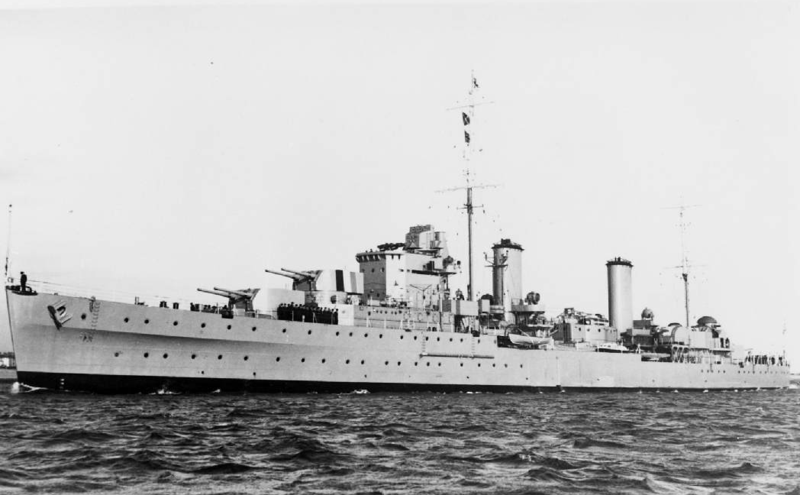HMS Aurora in November 1937
By August 1941, the British had been actively defending their Maltese toehold on the central Mediterranean for the better part of one year, and had built up a truly formidable force at Malta. In the air approximately 66 bombers attacked Axis shipping well protected by numerous fighters. The British also had upgraded their venerable Swordfish naval aircraft by adding radar allowing the slow bi-planes to fly and attack at night, thus alleviating losses that climbed earlier in the spring when the Italians had improved the anti-air capabilities on their merchant ships. Undersea, British submarines operated with increasing effectiveness; as a result, Italy lost her three largest troop transports in the late summer of 1941. Over 16 percent of all Axis cargo sent to Africa never made it. Axis shipping losses climbed even further when British surface warships returned to the Central Mediterranean in force, with these warships code-named "Force K" sailing out of Malta. Force K, formed on October 21, 1941, initially comprised two light cruisers, HMS Aurora and HMS Penelope as well as two destroyers, HMS Lance and HMS Lively. The veteran HMS Aurora, having been commissioned in November 1937 and by the fall of 1941 having already seen extensive combat, served as Force K's initial flagship.
During November of 1941 the combined efforts produced by British aircraft, submarines, and surface warships caused Axis merchant shipping loss rates in the Mediterranean to climb over 60 percent. These losses represented hundreds of tanks, vehicles, anti-tank guns, artillery, and other war material; a massive waste in resources the Axis stood in no position to replace. In one engagement, fought on the night of November 8th to the 9th, and without loss to itself, Force K sank an entire Axis convoy comprised of five cargo vessels and two tankers as well as sending an escorting Italian destroyer to the bottom.
The devastation of Axis merchant shipping meant that during a conference at the Wolfsscahnze on November 13, 1941 Raeder was forced to explain to Hitler and Jodl the intolerable supply situation in the Mediterranean could not go on much longer without additiional resources being committed to the region. Ironically, the German effort to counter British efforts in the Mediterranean would lead to an undermining of the most critical theater in the war; Germany's eastern front - at the exact moment when it would need all the resources it could get.
Picture in Public Domain


